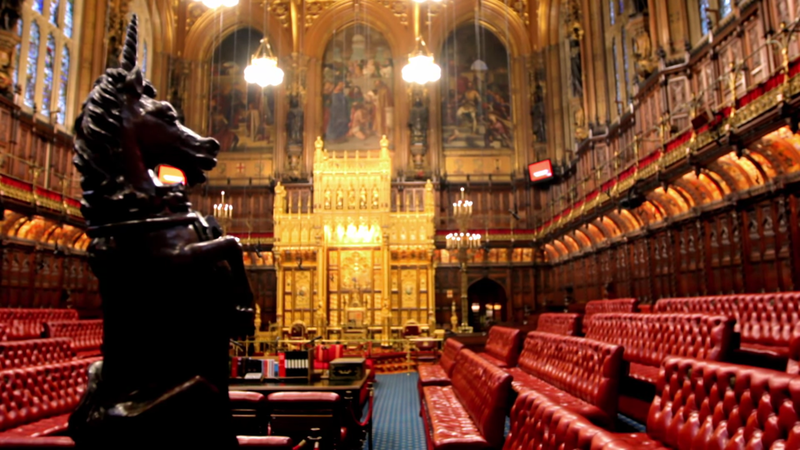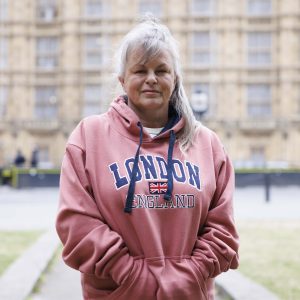 It could take over two decades for the Assisted Dying Bill to pass the House of Lords, even if no more amendments are tabled – unless the debate speeds up. That’s according to a new analysis by Humanists UK and My Death, My Decision. The House of Lords spent nearly five hours last Friday debating the Bill, but only made it through seven amendments out of nearly 1,000 tabled so far. Opponents of the Bill dominated the debate, speaking for three-quarters of it. At that rate, it would take over two decades to pass the House of Lords.
It could take over two decades for the Assisted Dying Bill to pass the House of Lords, even if no more amendments are tabled – unless the debate speeds up. That’s according to a new analysis by Humanists UK and My Death, My Decision. The House of Lords spent nearly five hours last Friday debating the Bill, but only made it through seven amendments out of nearly 1,000 tabled so far. Opponents of the Bill dominated the debate, speaking for three-quarters of it. At that rate, it would take over two decades to pass the House of Lords.
As the Assisted Dying Bill is a private members’ bill and not part of a government manifesto commitment, if it does not complete its passage before the next King’s Speech – expected in the spring – then it would fail entirely. Humanists UK and My Death, My Decision believe this would be egregious, as most of the public supports a change in the law, and the Commons has voted in favour with a clear majority.
Timeline analysis
On Friday 14 November, the first Committee of the Whole House took place for the Assisted Dying Bill, where Members of the House of Lords debate bills line by line. Lord Falconer of Thoroton, the Bill’s sponsor, set a target for the House to get through ten groups at the first sitting. Yet only two of the ten groups were debated in nearly five hours, covering just seven of 997 amendments so far.
Private members’ bills are normally only reserved for debate on Fridays, and while there isn’t a set rule, there are typically only 10 sitting Fridays a year. This means at the current rate of debate, and if no more amendments are tabled, it would take over 142 sitting Fridays, or almost 14 years, to pass Committee Stage. This is before the Bill even makes it to Report Stage. According to the Hansard Society, Report Stage in the Lords typically takes up half as much time as Committee, so it could take another 7 years to pass the Lords.
We are far from seeing the end of amendments, too. Peers usually have until two days before a Clause is debated to add new amendments. Most clauses won’t be reached for some time. Nearly 250 amendments were added the day before the debate last Friday.
Humanists UK and My Death, My Decision analysis has shown that seven of the most vocal opponents to the Bill have put forward nearly 600 amendments between them.
Over 800 amendments have been put forward by opponents of the Bill, and fewer than 100 have been put forward by supporters of the Bill. Lord Falconer, the sponsor of the Bill, has put forward 35 amendments.
Committee debate analysis
Opponents of the Bill dominated the debate, speaking for three-quarters of it – over three and a half hours. Peers supportive of the Bill only spoke for an hour, only one-fifth of the debate, with the neutral minister making up the last 5%.
Conservative peers spoke for over two hours in the debate, more than twice as long as Labour peers
A guide to filibustering in the House of Lords
Filibustering is when politicians deliberately waste time during a debate by making overlong speeches, raising unnecessary procedural points or any action to deliberately delay proceedings.
Unlike the House of Commons, the House of Lords does not usually have closure motions that force debates to end. There have been several examples of Bills with popular and parliamentary support running out of time.
Henry Smith MP’s Hunting Trophies (Import Prohibition) Bill in 2023 passed all stages in the Commons with cross-party and government support. In the Lords, a small group of pro-hunting peers tabled several amendments and refused to have them grouped, leading to long speeches on each. No further time was allotted before the session ended, so the bill ran out of time and fell. That Bill was only three pages long.
There have been accusations of filibustering in the past by the Lords over bills on hereditary peers, football regulation, and Brexit.
Wrecking, duplicating and delaying tactics
Opponents to the Bill will claim that a bill of this nature requires additional scrutiny. They may also claim that some amendments are probing, designed to encourage debate. However, some amendments are increasingly nonsensical, wrecking, and clear efforts to undermine the Bill.
Baroness Coffey has put forward an amendment that says that a person can only have an assisted death if they have not left the UK in the past twelve months. This would prevent anyone who had recently been on holiday from having an assisted death, and would also be unenforceable.
Lord Goodman of Wycombe has put forward several amendments to increase the number of assessment stages from two independent doctors and a panel to five doctors and a panel, the fifth being a geriatrician. This would be impossible to navigate for a terminally ill person with fewer than six months to live, and a significant minority of applicants for an assisted death would be under the age of 60 (15% of applicants in Victoria, Australia are).
Four amendments, Baroness Fox of Buckley (Amendment 150), Lord Goodman of Wycombe (Amendments 151 & 156), Lord Moylan (Amendment 152), and Lord Rook (Amendment 154) are almost identical and attempt to do the same thing. They aim to introduce a ‘gag clause’ to stop doctors discussing assisted dying with patients. Similar such amendments have repeatedly been discussed and voted down by the House of Commons at both the Committee and Report stages. They may be individually debated in the Lords in turn, if the sponsors want them to be.
Undermining the democratic process
Assisted dying has faced unprecedented scrutiny, more than any Private Members’ Bill in history.
The Health and Social Care Committee inquiry into assisted dying received 63,000 responses from the public, over 300 submissions of written evidence, two closed-door roundtable discussions and five oral evidence sessions. They reported in 2024.
Since then, the Commons Bill Committee received evidence from 50 witnesses, 444 pieces of written evidence, and spent over 100 hours scrutinising the Bill.
As the Hansard Society has pointed out, for a 51-page Bill, 942 amendments so far are an unusually large number of amendments.
 Louise Shackleton, who was under police investigation for accompanying her husband to Dignitas, said:
Louise Shackleton, who was under police investigation for accompanying her husband to Dignitas, said:
‘I sat by my husband’s side as he made the most heartbreaking and dignified decision of his life. He was suffering, and the only mercy left was to travel to Switzerland to end that suffering. For loving him enough to go with him, I was treated like a criminal. The system failed him, and it failed me. No one should have to choose between compassion and the law. We need change, not more delays, not more political games, but real, humane change.’
‘To see hundreds of wrecking amendments being tabled, many by the same small group of peers who’ve always opposed this Bill, is gut-wrenching. This isn’t scrutiny, it’s sabotage. While they play politics, people like my husband are forced to suffer, or die alone in another country. How can that possibly be right? The public supports this Bill. The Commons supports this Bill. These tactics are an insult to the democratic process and to every family that has lived through this pain.’
Dave Sowry, Board Member of My Death, My Decision, said:
‘Looking at the ridiculous number of amendments, I can only conclude that this represents a concerted effort by a very small number of peers, who are all against the Bill as a matter of principle, to block its progress.
‘They ignore the perspective of those the Bill is designed for, people at the end of their lives. Its aim is to improve the quality of those last weeks, and having accompanied my wife to Dignitas for an assisted death, I know how precious those weeks are.
‘The process must be as simple as possible for the vast majority of straightforward cases, whilst being robust and safe for the remaining tiny minority of complex cases. This small group of Peers must not be allowed to undermine the will of Parliament and the hopes and wishes of the public.’

